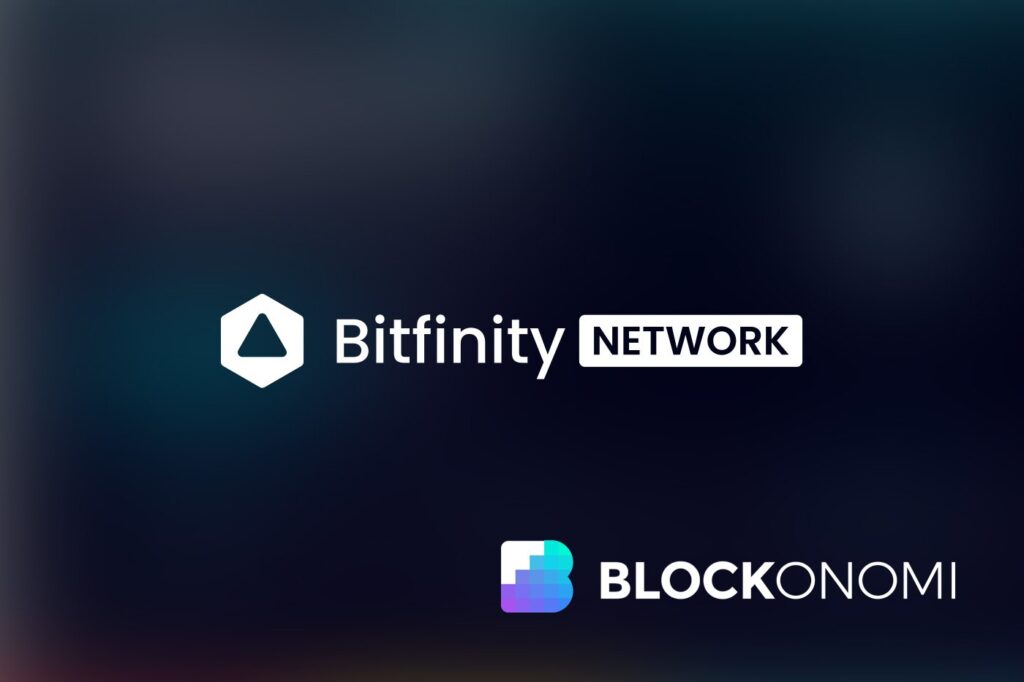Bitfinity Network Launches $12M Bitcoin Layer-2 Platform, Bridging Bitcoin and Ethereum Ecosystems

TLDR:
Bitfinity Network launches Bitcoin Layer-2 mainnet with $12 million in total funding
Uses Internet Computer Protocol’s Chain Fusion Technology for EVM compatibility
Raised $7M from institutional investors and $5M through community OTC sales
Introduces Bitgems feature for user engagement rewards
Network enables Bitcoin-native DeFi with enhanced security through Chain-Key technology
Bitfinity Network has officially launched its mainnet, introducing a new Bitcoin Layer-2 solution that bridges the gap between Bitcoin and Ethereum-based decentralized finance (DeFi). The platform secured $12 million in total funding, marking a major development in the cryptocurrency infrastructure space.
The funding came from multiple sources, with $7 million raised from institutional investors including Polychain’s Beacon Fund, ParaFi, Draft Ventures, Warburg Series, and 9 Yards Capital. The remaining $5 million was generated through over-the-counter (OTC) token sales, with strong participation from the community.
The wait is over! 🤩 #Bitfinity Mainnet is officially live today, November 19th!
We’re incredibly grateful to our amazing community for your support ❤️ and to the talented developers who made this milestone possible 💻✨
This marks an exciting new chapter for blockchain… pic.twitter.com/Em9IDR7Soh
— Bitfinity Network (@bitfinitynet) November 19, 2024
Bitfinity’s new platform leverages Internet Computer Protocol’s (ICP) Chain Fusion Technology, enabling Bitcoin-native assets to operate within an Ethereum-compatible ecosystem. This integration allows for the development of Bitcoin smart contracts while maintaining security and decentralization.
The network implements a threshold signature scheme to create a decentralized bridge to Ethereum, removing the need for centralized intermediaries. This approach gives users more control over their assets while enhancing security measures.
A key feature of the platform is its Chain-Key technology, which supports large signing committees capable of handling Bitcoin Schnorr and ECDSA transactions. This provides stronger security compared to traditional multi-signature solutions used by most Layer-2 networks.
The launch includes the introduction of Bitgems, a new feature designed to reward user engagement. Through this program, participants can mine digital gems as part of a Token Generation Event (TGE), helping to build and sustain the platform’s community.
Bitfinity’s token has already secured listings on several major cryptocurrency exchanges, including KuCoin, Huobi, and Gate.io. These listings provide easier access for users looking to participate in the network’s ecosystem.
The platform plans to host various decentralized applications, including Sonic, Chapswap, Lendfinity, and Omnity Bridge. These applications will expand the functionality available to Bitcoin users within the Bitfinity ecosystem.
The timing of Bitfinity’s launch coincides with increased activity in the Bitcoin market, as the price of BTC recently exceeded $94,000. This market movement has sparked renewed interest in expanding Bitcoin’s utility beyond its traditional role as a store of value.
The platform’s development team includes backing from the founder of Liquity, a protocol that achieved billion-dollar Total Value Locked (TVL) in borrowing and lending. Similar solutions are planned for implementation on the Bitfinity platform.
Recent data shows that ICP’s crosschain messaging protocol Chain Fusion, which Bitfinity utilizes, has experienced a 1,230% increase in usage year-over-year. This growth is attributed to Bitcoin-native applications using ICP for smart contract deployment.
Lomesh Dutta, VP of Growth at Dfinity, highlighted the platform’s potential impact, noting the strong community and investor support received by the project. The platform aims to address scalability and interoperability challenges in the Bitcoin ecosystem.
The Dfinity Foundation has confirmed that Chain Fusion enables direct interaction with the Bitcoin network without relying on trusted bridges, expanding the possibilities for complex programming on the Bitcoin network.
Bitfinity’s launch represents a technical advancement in Bitcoin’s DeFi capabilities, offering users new ways to interact with Bitcoin-based decentralized applications while maintaining security and decentralization.
The platform continues to develop its ecosystem, focusing on expanding its range of DeFi services and applications while maintaining its commitment to security and user control.












